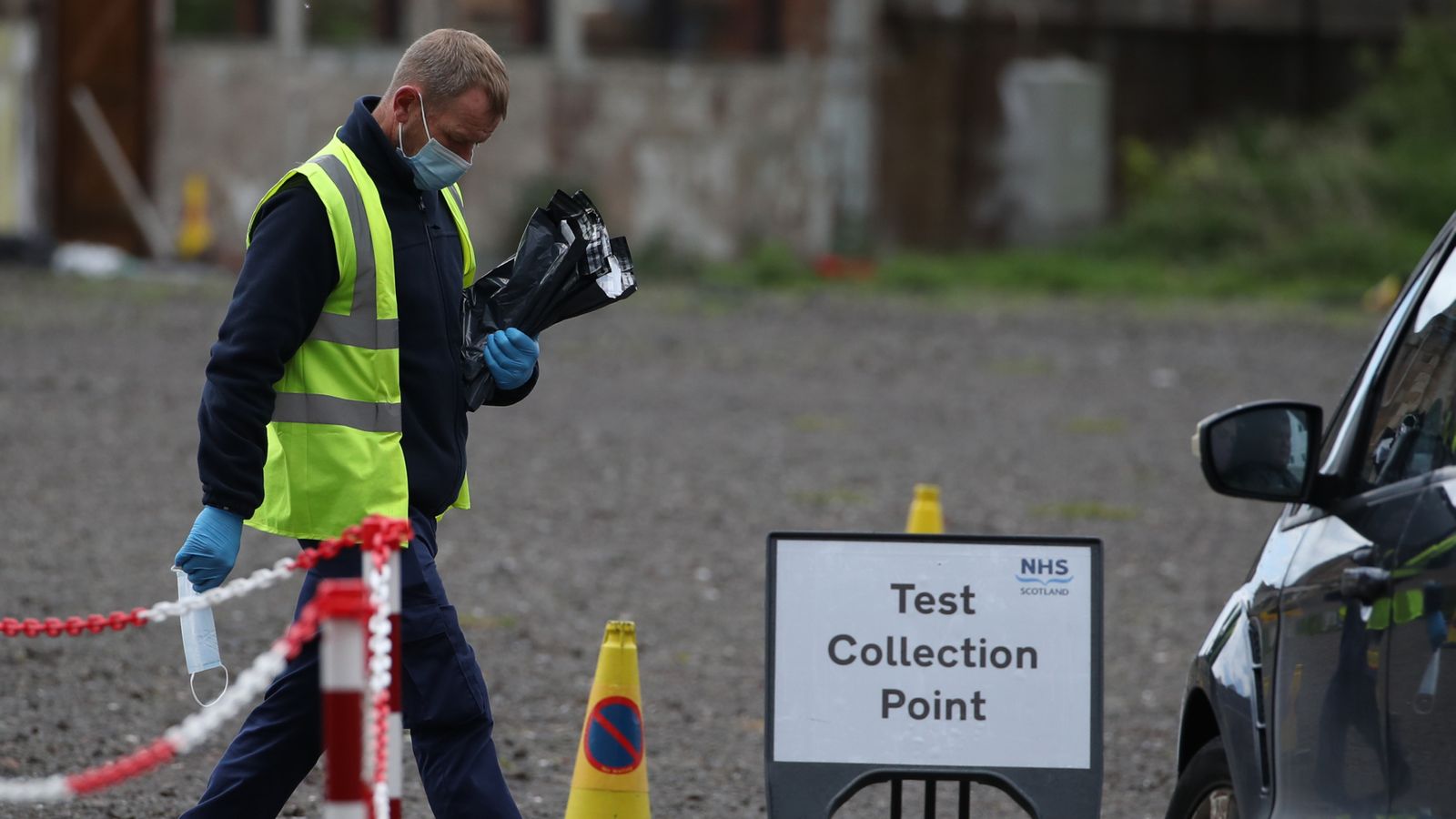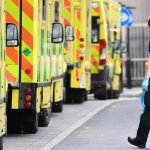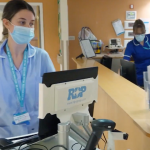Coronavirus testing services could become overwhelmed due to rising infections, government scientists have warned – as it was confirmed a new variant is under investigation in the UK.
More than 30,000 new cases of the Delta variant have been recorded in the UK since last week, according to Public Health England, bringing the total to 286,765.
Delta, first identified in India, now accounts for 99% of new coronavirus cases and is helping to fuel a third wave.
Experts on the Scientific Pandemic Influenza Group on Modelling (Spi-M) government advisory panel have warned testing is likely to come under strain due to increasing demand.
In an official document published on Thursday, Spi-M said: “As cases continue to rise, it will become more challenging to ensure provision of testing at the scale and timeliness currently seen across England, either regionally or nationally, if testing capacity does not keep pace with increases in infections.”
Ministers have suggested that daily testing for certain vital sections of the economy will help end shortages and a staffing crisis created by the so-called “pingemic”.
On Thursday, it was announced that critical workers and those in vital public services will be able to avoid the need to self-isolate if identified as a contact of a coronavirus case by the NHS app, and instead take daily COVID tests.
Everyone else who is fully jabbed will be able to skip isolation from 16 August, provided they take a PCR test and are negative.
The scientists’ warning comes as it was announced a new coronavirus variant is under investigation by Public Health England (PHE).
Experts are analysing instances of the B.1.621 variant found in pockets of the UK.
To date, 16 cases have been detected, although the majority are linked to overseas travel and there is no evidence of community transmission.
B.1.621 has been found in other countries including Colombia (325 sequenced cases), the US (264 sequenced cases) and Spain (196 sequenced cases).
There is no evidence it causes more severe illness or renders the current vaccines on offer any less effective.
Updated figures from PHE show the Delta variant may be 46% more likely to cause reinfection than the Alpha variant first identified in Kent.
It has overtaken the Beta variant – first found in South Africa – which currently accounts for less than 0.2% of cases in the UK.
The data shows that, while the overall chances of getting reinfected are very low, the Delta variant poses a higher risk.
The figures also showed the breakdown of how many people in hospital with the Delta variant have had one or both doses of a COVID-19 vaccine.
Between 21 June and 19 July, 1,788 people were admitted to hospital after testing positive for the Delta variant, the data shows.
Please use Chrome browser for a more accessible video player
Of these, 970 (54.3%) were unvaccinated, while 530 (29.6%) were fully vaccinated.
In total, 3,692 people have been hospitalised with Delta, of whom 2,152 (58.3%) were unvaccinated and 843 (22.8%) were fully vaccinated.
From February to mid-July, among the under-50s who had received both vaccines just four patients died with the Delta variant out of 15,346 cases in this group (0.02%).
There have been 34 deaths among the unvaccinated in the same age group, among 119,063 Delta cases (0.02%).
Meanwhile, among the over-50s who have received both vaccinations there have been 220 deaths out of 13,427 cases (1.64%).
And there have been 131 deaths among the unvaccinated over-50s among 2,337 cases (5.6%).
To date 87.9% of the UK population have received at least one COVID vaccine and 69.5% have had two doses.
Dr Jenny Harries, chief executive of the UK Health Security Agency, said: “This most recent hospitalisation data shows once again just how crucial vaccination is in protecting us from severe illness and death…
“As we emerge from restrictions and vaccine coverage continues to rise, it is important to remember that while the protection provided by vaccination is excellent, it is not total.”
The UK reported a slight decrease in coronavirus cases on Friday and on Thursday.
Government figures show 36,389 new cases were reported on Friday. A drop on the 39,906 cases were reported on Thursday, which itself was down almost 18% from the previous Thursday’s figure of 48,553 cases.
However, an expert warned that the cases figure was not representative of real-time infections due to the lag in reporting times and that the impact of most restrictions lifting in England is yet to be seen.
Paul Hunter, professor in medicine at the Norwich School of Medicine, University of East Anglia said: “It is still too early to see any impact of the relaxations of Monday 19 (July) and some of the reduction in cases will be because of many children no longer being tested as regularly now schools are closed.
Subscribe to the All Out Politics podcast on Apple Podcasts, Google Podcasts, Spotify, Spreaker
“I would caution that this may just be a temporary slowing in reports before we start to see a return to exponential growth towards the end of next week as a result of the ending of restrictions last week”.
Prof Hunter said we will not know for certain if the third wave is tailing off until 9 August – three weeks after 19 July.
“But there are some positive signs. If you look at the course of the Delta epidemic from early May it was clear that the rate of increase in cases was already slowing by June,” he said.






















